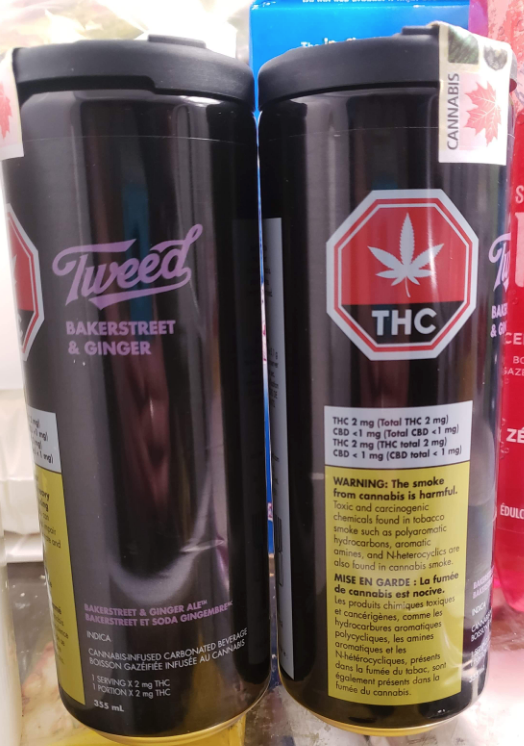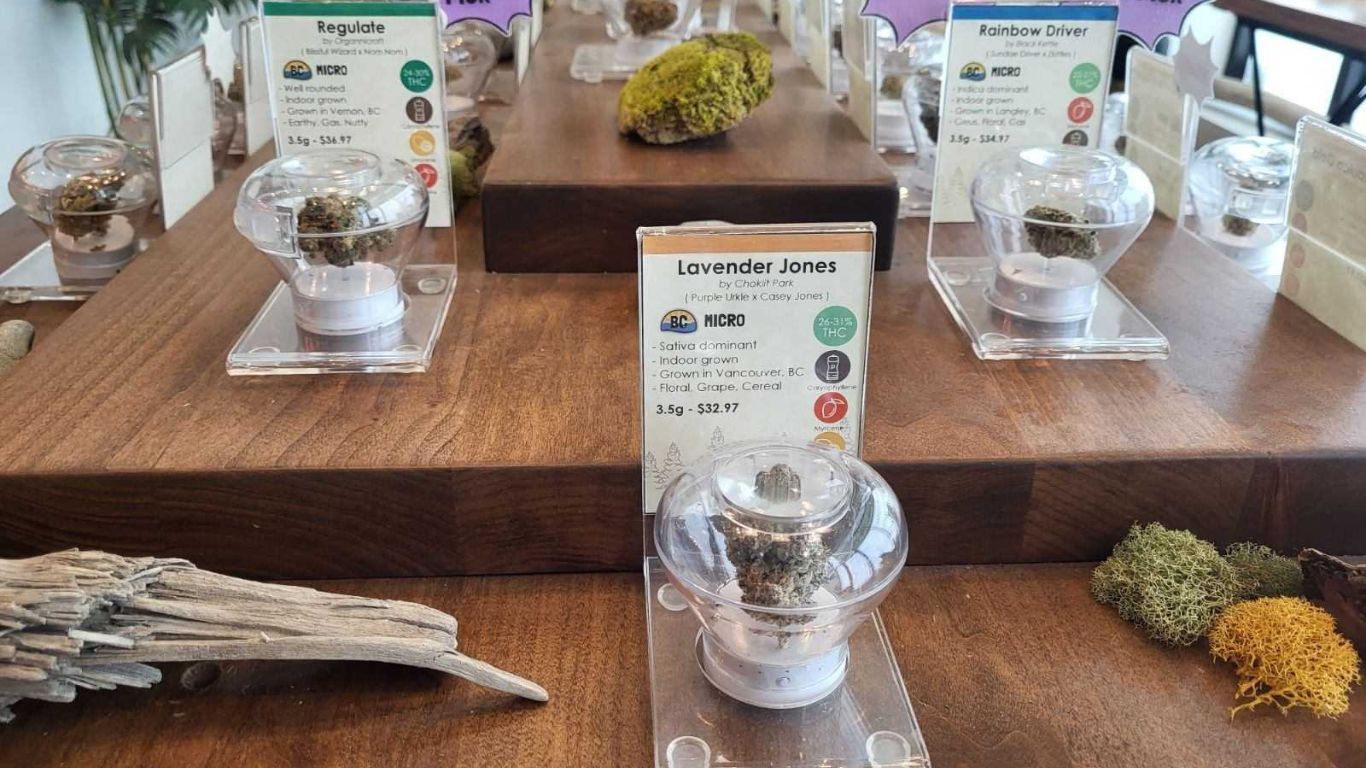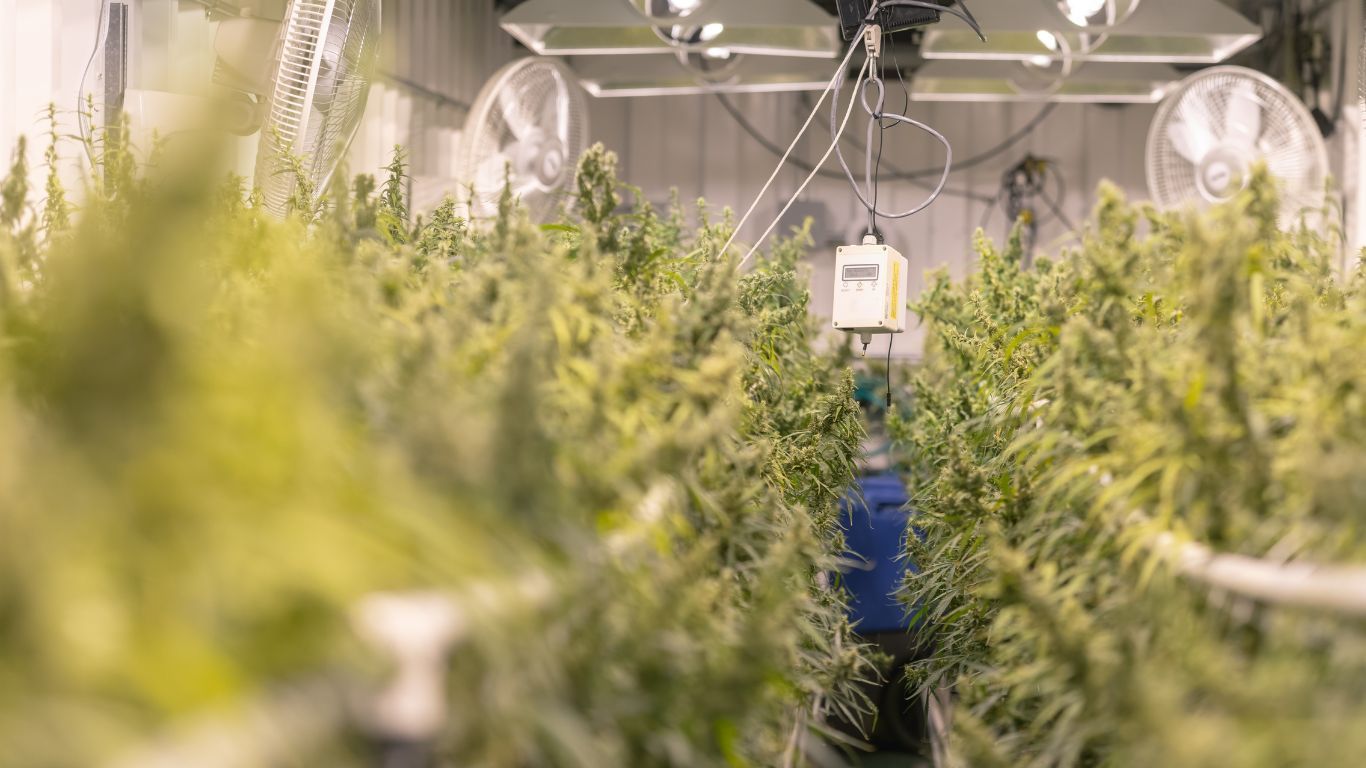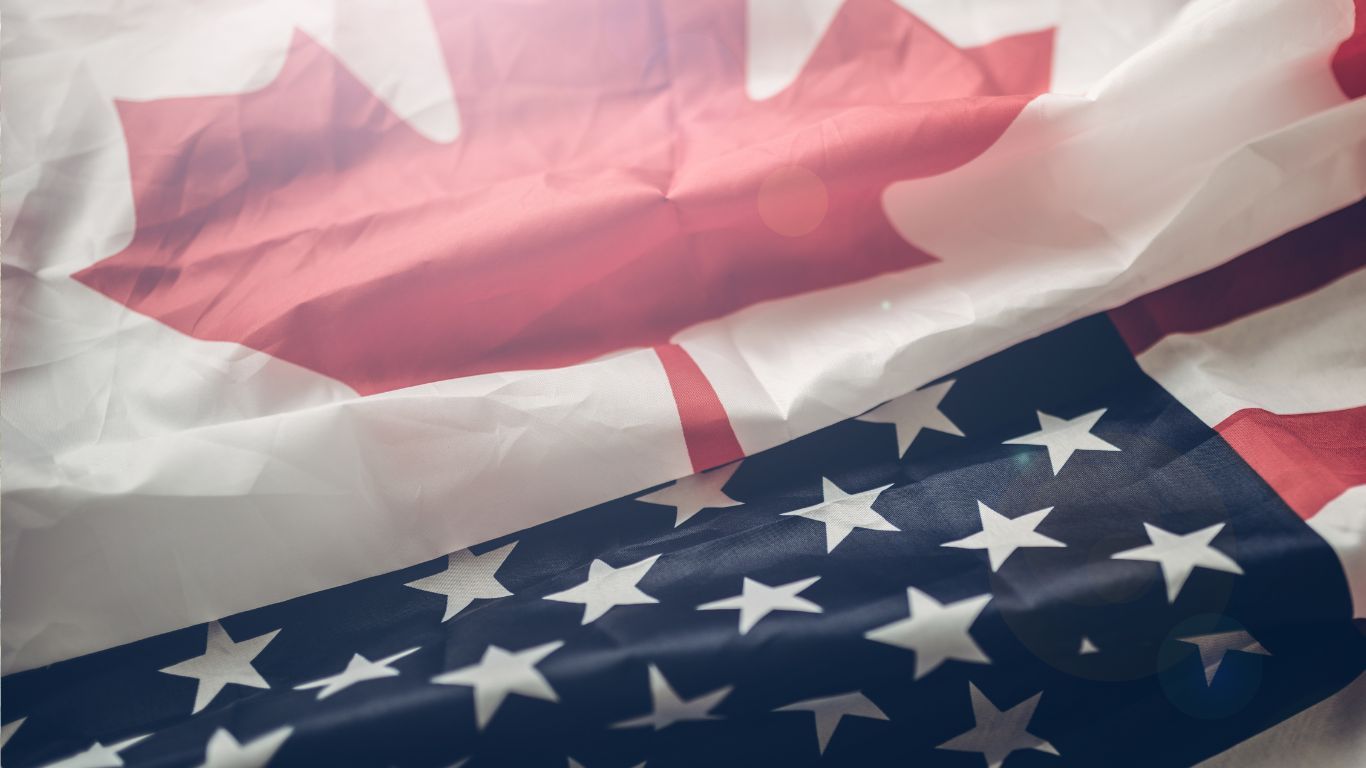
Some Vancouver retailers are pushing cannabis companies to remove or at least identify palm oil in various cannabis products, from vape pens to beverages.
The presence of palm oil in a wide range of food and consumer products – including in cannabis edibles, carrier oils, and drinks – has been mired in controversy for many years.
Palm oil cultivation can contribute to rainforest destruction, loss of animal habitat, and climate change. Nonetheless, it is present in almost half of all packaged consumer products, and despite pressure to increase awareness amongst licensed cannabis producers, retail outlets, and consumers, advocates say there’s still plenty of work to do.
Many people who are very environmentally conscious have never heard of palm oil. Others might be aware of palm oil, but unaware of how prevalent it is in cannabis products.
Maria Petrucci, Evergreen Cannabis Store
“Consumer awareness is a mixed bag,” says Maria Petrucci, co-owner of the Evergreen Cannabis Store in Vancouver’s Kitsilano neighbourhood. “Many people who are very environmentally conscious have never heard of palm oil. Others might be aware of palm oil, but unaware of how prevalent it is in cannabis products.”
Evergreen Cannabis Store is doing its best to avoid palm oil, while also educating consumers and licensed producers on palm oil’s connection to environmental harm, and the manner in which it inserts itself into the cannabis supply chain.
I want to see ‘palm oil derived’ in the ingredients’ list.
Andrea Dobbs, village bloomery
However, while consumers are often happy to be informed, with some willing to change their buying habits, producers have been slower to adapt. Part of the challenge has been that labelling requirements in Canada allow for palm oil derivatives to sneak in under other names.
“Palm oil is hidden in all sorts of ingredients like palmate, stearate, sodium lauryl sulphate, glyceryl and MCT,” says Andrea Dobbs, co-founder and operator of Village Bloomery in Vancouver. “I want to see ‘palm oil derived’ in the ingredients’ list.”
As it stands, the consumers are nearly entirely in the dark about how these products are produced.
andrea dobbs, village bloomery
MCT is short for medium-chain triglyceride. It is a popular carrier oil for cannabis products because it evenly absorbs compounds, which allows for accurate dosing. MCT is also quickly broken down by the liver, with any excess easily absorbed by the intestine. The challenge is that, though MCT can also be derived from coconut oil, the present labelling system in Canada doesn’t require a producer to inform the consumer of MCT’s origin.
“The brands are aware,” says Petrucci. “They’re creating the product. They know why they’re labelling things, and they know what’s in their own products.”
Though the brands may have this knowledge, many don’t feel the need to proactively inform their customers about palm oil content. As a result, Petrucci and her staff at Evergreen Cannabis Store have done a lot of leg-work to determine what’s in their products.
“My staff are very concerned,” says Petrucci. “They’ll do research, and send emails to brand managers for confirmation of an ingredient, and what it means.”
One of our social purpose and advocacy pillars is sustainability, and we are aware of the issues surrounding palm oil.
Adam Greenblatt, canopy
It’s been something of an uphill battle for Evergreen Cannabis Store, though the company is finding allies amongst other members of the Association of Canadian Cannabis Retailers (ACCRES), and also among customers who appreciate the commitment to ethical sourcing. And while many of the larger producers appear to be indifferent to the issue, others, such as Canopy Growth, are willing to engage.

“One of our social purpose and advocacy pillars is sustainability, and we are aware of the issues surrounding palm oil,” says Adam Greenblatt, a Senior Communications Advisor with Canopy. “The MCT oil used in our oil and soft-gel products is coconut derived, and there is no palm oil in our chocolates. There is however a minuscule amount of vegetable glycerin in the beverages that is palm derived, and we are currently investigating other sources.”
Evergreen carries products from COVE (part of Cronos Group), Edison Cannabis, and Emerald Therapeutics, none of which use palm oil. In the example of Canopy, Evergreen says they will carry their products, but not their drinks. Similarly, Foray (a brand of Auxly Cannabis Group) has chocolates and cartridges that are palm-oil free, and Evergreen carries those, but it doesn’t sell Foray’s gummies, which are vegan, but contain palm oil.
We are constantly working with licensed providers on recycling issues.
Mike Babins, EVERGREEN
In today’s market, this kind of selective sourcing, often based on independent research, is the only way for a retailer to ensure its products are free of palm oil. The lack of rigour on the part of the government with regard to labelling requirements, and the uneven response by licensed producers, means that consumers are often left in the dark. That’s changing, with advocates continuing to press the message, often tying the palm oil issue in with other environmental causes.
“For us, the only way forward is through creating awareness within the retail sector, education of the consumer, and direct and frank communication with the producers” says Dobbs from Village Bloomery. “They want to succeed and so do we. We want to be engaged in a dynamic and exciting landscape that respects the earth and all of its inhabitants.”
The notion of tying the removal – or at least the proper identification – of palm oil products with environmental concerns would seem logical. Yet there appears to be a disconnect among consumers, which may be only a matter of awareness.
“People complain all the time about packaging,” says Mike Babins, who co-owns Evergreen with Maria Petrucci. “We are constantly working with licensed providers on recycling issues. And on the consumer front, a customer might complain that an edible product isn’t strong enough, but then be unwilling to take a stand on what’s in it.”
Within cannabis products, it is unlikely that palm oil will disappear any time soon. For now, it’s up to a committed minority of retailers to push for change. Will it result in an industry-wide transformation, or a bigger presence for niche products? Time will tell. What’s clear, is that more work can be done.
“I for one would like to see clearly labeled ingredients that name the derivative sources, so that we can have a choice in the matter,” says Dobbs from Village Bloomery. “As it stands, the consumers are nearly entirely in the dark about how these products are produced.”
-Tim Wilson
Tim Wilson is an independent journalist, researcher, and author. He reports extensively from Canada and Mexico. Follow him on Twitter @TimothyEWilson











